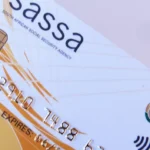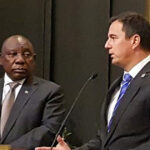Democratic Alliance (DA) leader John Steenhuisen has revealed the party's revised stance on cabinet positions in the GNU coalition government in a letter addressed to President Cyril Ramaphosa. This comes in the wake of a public outcry over a leaked letter from DA Federal Council Chairperson Helen Zille, which outlined the party's initial demands. The revised offer includes six cabinet portfolios and several deputy ministerial positions, marking a significant development in the ongoing negotiations.
The DA has been offered the following cabinet portfolios: Home Affairs; Basic Education; Trade, Industry and Competition (DTIC); Public Works and Infrastructure; Communications and Digital Technologies; and Forestry, Fisheries and the Environment. Additionally, the party has been extended deputy ministerial positions in Finance, Energy and Electricity, Small Business Development, and one other yet to be determined. This offer has been confirmed by DA's Richard Newton and other reliable sources close to the party, as reported by IOL.
Steenhuisen cautiously expressed his satisfaction with the offer, acknowledging the quality of the portfolios on the table. "In terms of the quality of the portfolios listed above – both in Cabinet and in terms of Deputy Ministries – the DA is satisfied and regards these as a serious offer," he stated. However, concerns have been raised within the party regarding the allocation. Steenhuisen pointed out that the DA's proportional allocation of positions falls short of what they believe they deserve. "On a purely proportional basis, out of a Cabinet of 30, the DA's share of support within the GNU translates to nine positions rather than the six that are currently on the table," Steenhuisen explained.
Sources close to the negotiations have indicated that disagreements persist, particularly surrounding the allocation of the DTIC portfolio. According to insiders, some members of the ANC are opposed to granting this ministry to the DA, causing a delay in finalizing the talks. Speaking on condition of anonymity, a source revealed a potential motive behind the ANC's resistance. "Ebrahim Rasool is earmarked to take over the DTIC. But at the centre of his take-over is to ensure that the big multi-billion rand National Lottery deal could be given to HCI (Hoskins Consolidated Investments), which is run by Johnny Copeland. HCI has made a bid for the operating licence," the source claimed. The news crew has reached out to HCI for comment on this matter.
Furthermore, the same source alleged that President Ramaphosa is facing pressure from an undisclosed foreign agency. The agency is said to be threatening to release a sensitive report related to the Phala Phala scandal if the president does not meet most of the DA's demands. It should be noted that the DA had previously requested the FBI to investigate the legality of the possession of a substantial amount of US dollars connected to the Phala Phala case.
In an unexpected move, Steenhuisen proposed additional options for DA representation. Apart from the six cabinet portfolios offered, he suggested that the DA be allocated two more ministries from the choices of Sports, Arts and Culture; Agriculture, Rural Development and Land Reform; or Public Service and Administration. Steenhuisen also expressed the party's willingness to move public sector wage negotiations from Public Service and Administration to the Minister of Finance if required.
Amidst the ongoing negotiations, rumors have surfaced about the DA's ambitions for even greater gains in the proposed coalition government. Speculation suggests that Steenhuisen aims to secure the Ministry in the Presidency, while Helen Zille, the influential DA Federal Council Chairperson, could potentially be elevated to the position of Deputy Presidency if current Deputy President Paul Mashatile faces legal challenges. Persistent rumors of Mashatile's imminent arrest further fuel the uncertainty surrounding the final composition of the proposed coalition government.
As the nation eagerly awaits the outcome of these high-stakes negotiations, the political landscape of South Africa hangs in the balance. The decisions made in the coming days will shape the future of the GNU coalition government and have far-reaching implications for the country as a whole. With the specter of the Phala Phala scandal looming in the background, President Ramaphosa faces a critical choice, knowing that the exposure of more secrets could have devastating consequences for his administration.











